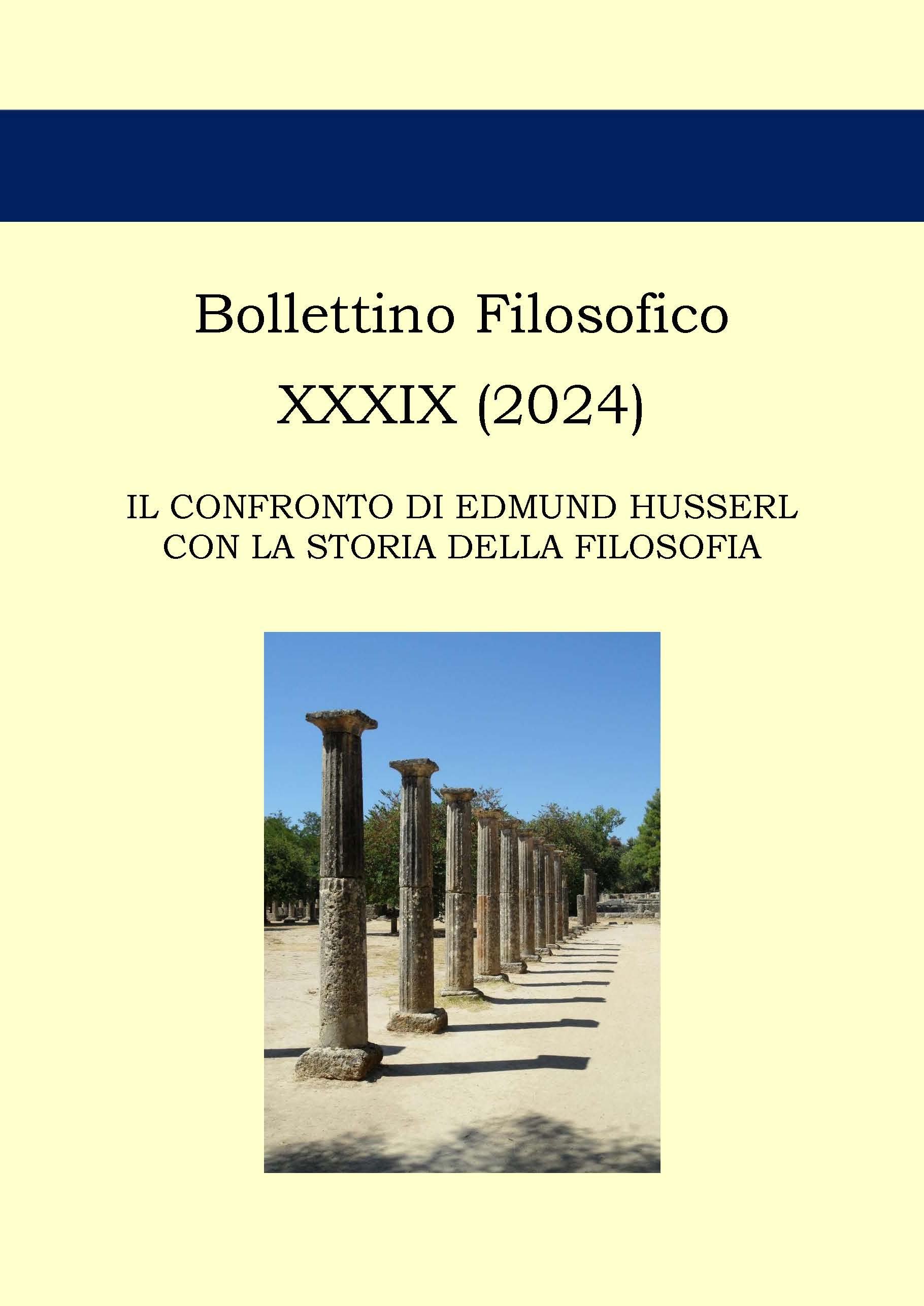Husserl e la storia della logica
DOI:
https://doi.org/10.6093/1593-7178/11435Abstract
The essay aims to examine the role that the history of logic, in its different versions, has played in Husserlian thought. The essay consists of five paragraphs. In the first, I will go back over some preparatory material to the 1890-91 review of Schröder, in which the role of Viète and his specious algebra is mentioned for the first time, and the 1895 lectures on the history of contemporary logic. In the second, I will go back to the 1887-88 manuscripts on the history and philosophy of mathematics (in which Kant and, above all, Hume are discussed), then follow their development in 1896, when logic as a theoretical discipline is included, and in 1908, where an early reference to the Stoic theory of lektòn appears. In the third section, I will address the connection between the 1913 reduction of logic with the historical-critical analysis of the apophantic-formal analytic of 1923-24 and the distinction between rationalisation, comprehension and logification of the same years, through which the problem of the ideal genesis of the idea of rigorous science is posed. In section four, however, I will address the brief history of logic that Husserl composes in 1929, within Formal and Transcendental Logic, in which the link between Stoics and Viète, i.e. between symbolic knowledge and algebra, is now explicit, and in which the historical problem of logic is intimately connected to that of rationality as a praxis of responsibility and control, and the link between the documentation of the sciences and the creation of communities professionally concerned with truth is evident. Finally, in the conclusions, I will try to show how and why, in Crisis, the order of historical prominence goes from physical geometry to modern logic, and not vice versa.
Keywords: Algebra of Logic, History of Logic, Mathematical Logic, Phenomenological Logic
Downloads
Downloads
Pubblicato
Come citare
Fascicolo
Sezione
Licenza
Bollettino Filosofico pubblica in internet, ad accesso aperto, con licenza:
|
|
CCPL Creative Commons Attribution |
L'autore conserva il copyright sul suo contributo, consentendo tuttavia a chiunque "di riprodurre, distribuire, comunicare al pubblico, esporre in pubblico, rappresentare, eseguire e recitare l'opera", purché siano correttamente citati l'autore e il titolo della rivista. L’autore, al momento della proposta di pubblicazione, è inoltre tenuto a dichiarare che il contenuto e l’organizzazione dell’opera è originale e non compromette in alcun modo i diritti di terzi, né gli obblighi connessi alla salvaguardia di diritti morali ed economici di altri autori o di altri aventi diritto, sia per testi, immagini, foto, tabelle, sia per altre parti di cui il contributo può essere composto. L’autore dichiara altresì di essere a conoscenza delle sanzioni previste dal codice penale e dalle leggi speciali per l’ipotesi di falsità in atti ed uso di atti falsi, e che pertanto Bollettino Filosofico è esente da qualsiasi responsabilità di qualsivoglia natura, civile, amministrativa o penale, e sarà dall'autore tenuta indenne da qualsiasi richiesta o rivendicazione da parte di terzi.

